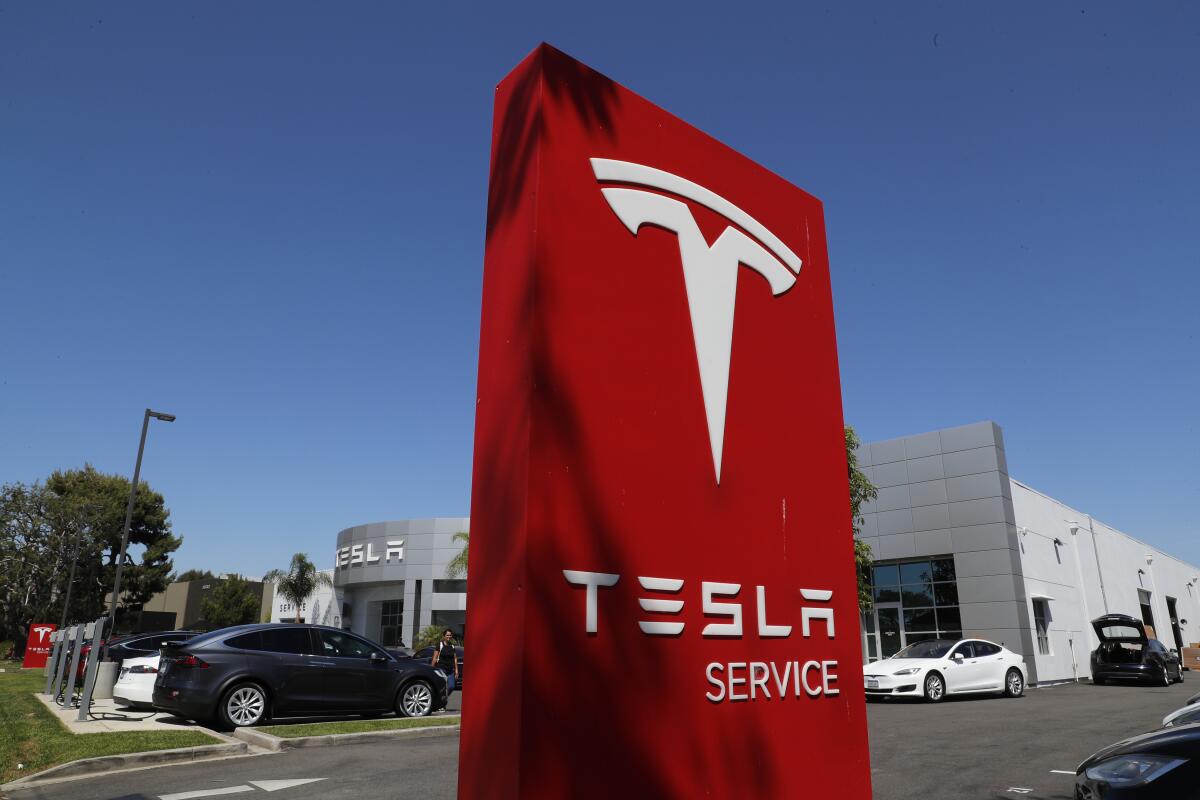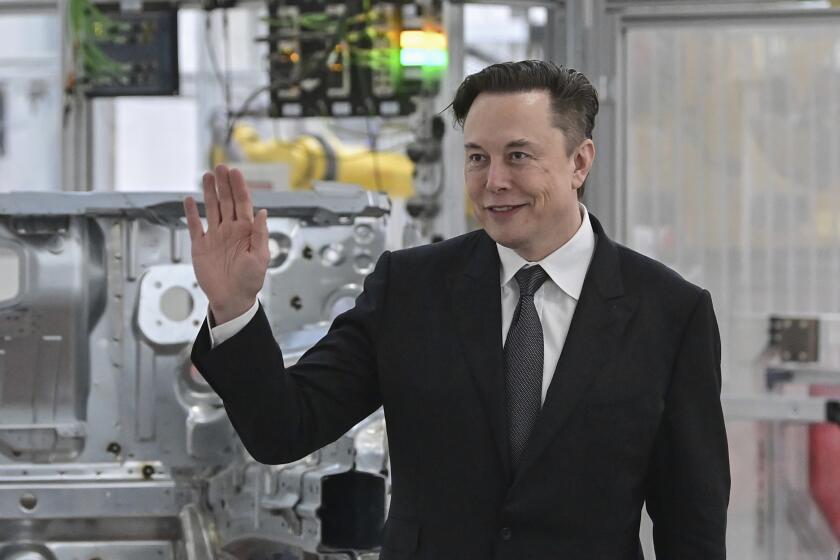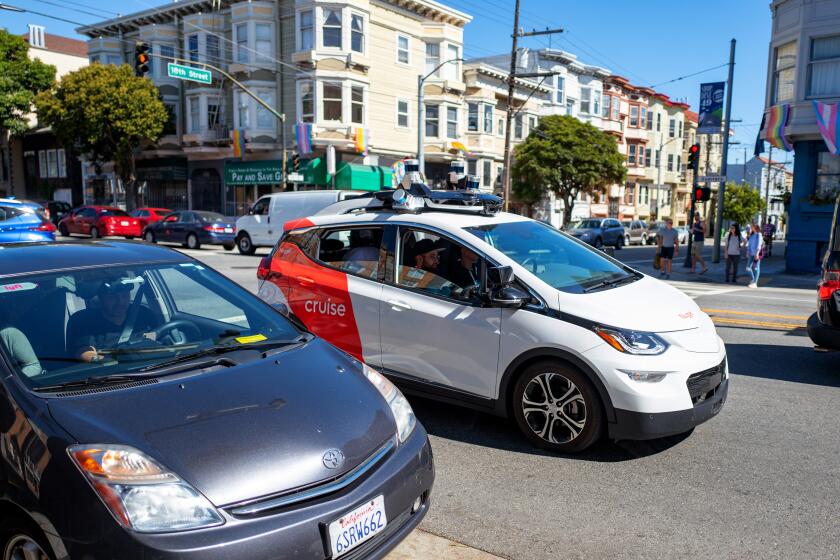Tesla recalling 362,758 cars with Full Self-Driving mode due to crash risk

- Share via
Under pressure from federal safety regulators, Tesla on Thursday launched a recall to repair defects to the experimental Full Self-Driving software deployed on public roads.
The recall affects 362,758 Tesla vehicles and includes certain Model S and Model X (2016-23), Model 3 (2013-23), and Model Y (2020-23) vehicles. To be delivered by over-the-air-software, the fix is intended to repair code that can cause FSD-equipped Teslas to run yellow lights, disobey speed limits and travel straight ahead from turn-only lanes. Recalled models make up about 10% of the 3.6 million vehicles that Tesla has sold to date globally.
The company has been under fire for years from critics who say using the software is a risk to public safety. YouTube is rife with videos showing FSD-equipped cars crossing double yellow lines head-on into oncoming traffic, mistaking railroad tracks for roadways, aiming cars into pedestrians in crosswalks, and more.
One critic even spent $600,000 on a Super Bowl commercial that ran in regional markets to show FSD Teslas running over child-size dummies.
Regulators have been slow to act, but the latest recall shows that the National Highway Traffic Safety Administration is finally getting serious about self-driving and public safety, said Missy Cummings, a former Navy fighter pilot and autonomous systems expert at George Mason University. Cummings recently completed a one-year stint at NHTSA where she helped update employees on new technologies now proliferating in the auto industry.
Tesla’s CEO has claimed a perfect record for the safety of his company’s robot-driving system. A public crash-reporting database contradicts him.
Data on automated-driving crashes have been hard to come by, but last year NHTSA began requiring carmakers to report such crashes directly to the agency when they involve serious injuries or deaths, a move “critical” to enforcing recalls such as the one issued by Tesla on Thursday, Cummings said.
“I am impressed NHTSA was able to get Tesla to agree to this, and it shows Tesla is starting to understand that working with NHTSA is better than an antagonistic relationship,” she said.
The only public response from Tesla was a tweet from Chief Executive Elon Musk who said the word “recall” is “anachronistic and just flat wrong!”
The federal government hasn’t required automakers to provide data on crashes involving cars with automated-driving systems. That’s changing.
Whatever it’s called, neither Tesla nor NHTSA said whether FSD should be used until the software is fixed. NHTSA said the software update will happen in the “coming weeks.” Cummings called that timeline unrealistic; such work will require half a year or more, she believes. NHTSA did not respond to questions about what would happen if the software was not fixed, and how it would determine whether Tesla’s software updates fixed the problems. Letters will go out to affected vehicle owners by April 15, according to NHTSA.
The recall could cause sales and revenue problems for Tesla, said Stephen Beck, founder and managing partner at consulting firm Cg42. “For all those people thinking about an electric vehicle at the moment, thinking about Mercedes or Ford or Polestar or Rivian and the rest, they have to sit back and go ‘hmm.’ They’ll be thinking maybe Full Self-Driving isn’t all it’s cracked up to be,” he said.
Several automakers are selling their own versions of automated driving technology, though none go so far as to call it “full self-driving.” No matter the automaker, the systems still require the human driver to pay attention, and when there’s a crash, the human driver is liable for damages, not the automaker, unless serious manufacturing defects can be proved.
Meanwhile, the California Department of Motor Vehicles is nearly two years into a review of whether Tesla has violated state law by duping customers into believing that Full Self Driving means the car is capable of fully driving itself.
More to Read
Inside the business of entertainment
The Wide Shot brings you news, analysis and insights on everything from streaming wars to production — and what it all means for the future.
You may occasionally receive promotional content from the Los Angeles Times.














